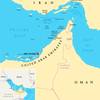When OPA 90 was introduced in wake of the Valdez accident, the stipulation that tankers trading in the U.S. must be double hulled was roundly panned throughout the world, as industry experts bemoaned the fact that one country have such a deciding impact on vessel design.
How soon they forget.
Ten years and a few tragic sinkings off European shores have let to Italy's sudden plan to ban single-hulled tankers from seven key port areas, a move which some contend will cripple a pipeline feeding oil to Germany from the Italian port of Trieste, a leading brokerage warned. "The ban will be felt in Germany and Austria," said Italy's largest brokerage Banchero Costa. "Unilateral action by the Italian ministry could...lead to chaos in the supply chain."
Italian Environment Minister Willer Bordon said the government was preparing a directive aimed at reducing the risk of environmental damage from oil spills by banning single-hulled tankers from seven key port areas from April 23. But brokers and shippers warned that there were simply not enough double-hulled tankers in the region to service the need of the Italian oil trades. "This directive represents a notable leap in safety," Bordon said.
"We will be at the vanguard of Europe and the world."
The ban would apply to several areas with major tanker terminals, including eastern Sicily, Genoa and Trieste. Banchero Costa estimated that crude shipments from Trieste to Germany of 27 million tons per year could be affected, as well as shipments of 7.5 million tons per year to Austria.
It said that the ban might force Germany to abandon the pipeline from Trieste. "Ports such as Lavera in France, which itself has a pipeline link to Germany could well be considered as an alternative to the Italian route," it said.
Banchero Costa's port agency director Alberto Noli estimated that the plan would prevent 6,000 port calls by tankers each year. He added that the ban "could well affect the public with fuel delays and price rises."
Commenting on the concerns of brokers and shippers, Bordon said: "The owners would like more time, but they must realize we must head in this direction." Noli said that when a similar directive was applied in the Venice lagoon in February, the cost of transporting oil and petroleum products rapidly soared, while New York broker Poten said it had already seen evidence of freight costs rising in the Mediterranean.
"There is not sufficient availability of double-hull tankers for Italy to switch cold turkey, particularly for the smaller size categories," Poten said in a report entitled "Italy - turmoil coming."
Poten said that Italian electricity plants were much more dependent on fuel oil than their European counterparts, and as a result Italy would be hit particularly hard by its own ban.
It calculated that two thirds of Italian oil imports and 90 percent of exports were carried in single-hulled tankers, which would be forced out under the ban.
Last month, brokers and shippers rejected the ban as political posturing in the run up to general elections in May, and said they doubted it would be enforced for long. - (Reuters)
Featured videos

Inmarsat Enhances Service to Drive Digitalization

Inside the Electrified Truckable Tug

Tracking Foreign Vessels Working in the U.S. Jones Act Market
Subscribe for
Maritime Reporter E-News
Maritime Reporter E-News is the maritime industry's largest circulation and most authoritative ENews Service, delivered to your Email five times per week









